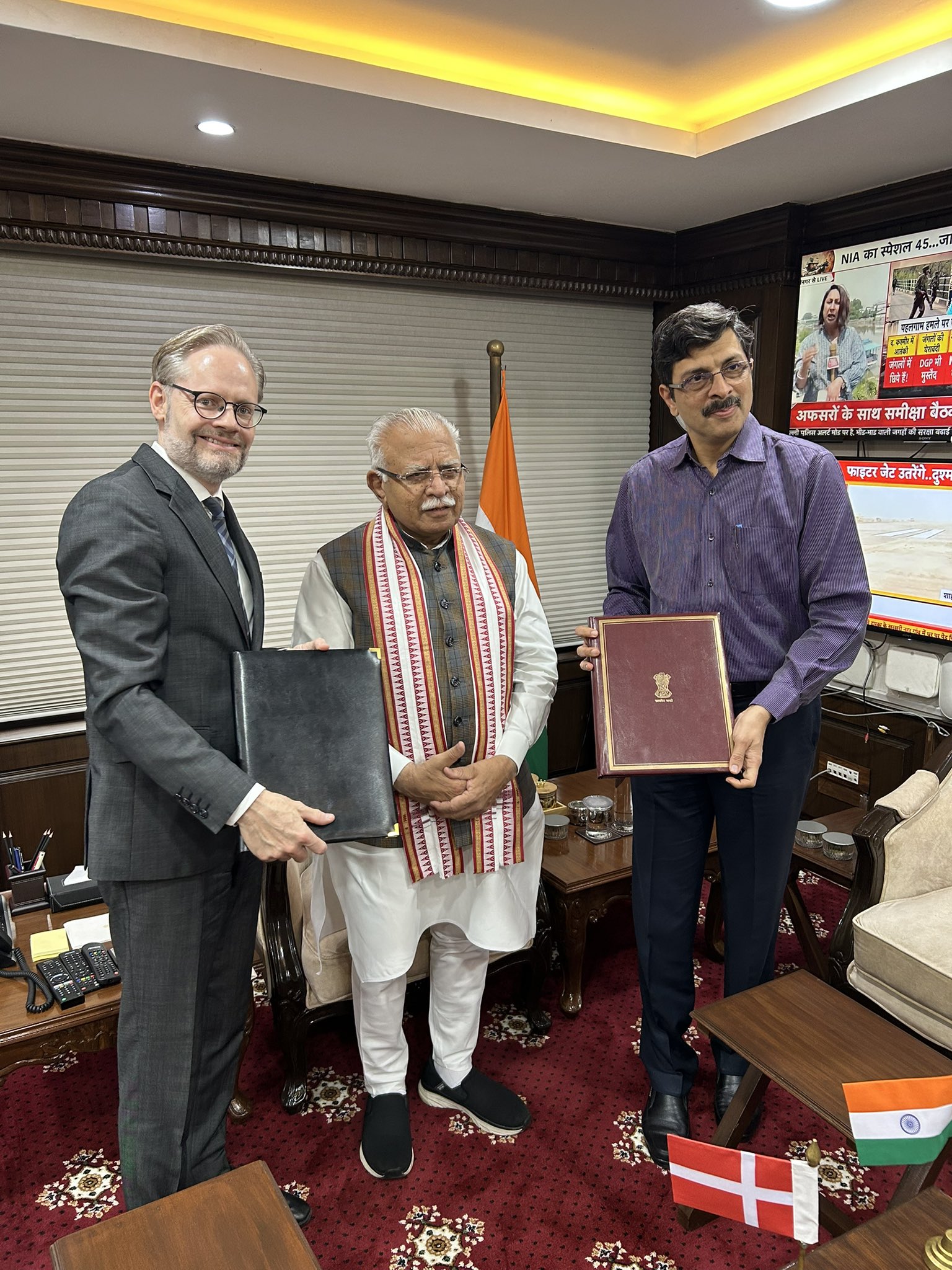India and Denmark Renew Energy MoU to Deepen Clean Power Collaboration
The new MoU goes well beyond the foundational objectives of the previous one by expanding the scope of cooperation into cutting-edge areas critical to the global energy transition.

- Country:
- India
In a significant reaffirmation of bilateral cooperation on sustainable energy development, India and Denmark have officially signed a renewed Memorandum of Understanding (MoU) aimed at deepening collaboration in the field of clean and renewable energy. The agreement was formalized in New Delhi by Shri Pankaj Agarwal, Secretary of the Ministry of Power, Government of India, and His Excellency Mr. Rasmus Abildgaard Kristensen, Ambassador of Denmark to India, in the esteemed presence of Shri Manohar Lal, Hon’ble Minister of Power and Housing & Urban Affairs.
This MoU reflects the shared vision of both countries to accelerate the global clean energy transition and achieve long-term climate goals. The partnership, which began formally with an MoU signed on June 5, 2020, has already witnessed five years of fruitful cooperation. With the initial agreement set to expire in June 2025, this proactive renewal underscores the commitment of both nations to continue and expand their collaborative efforts in energy development without interruption.
Key Pillars of the Renewed Agreement
The new MoU goes well beyond the foundational objectives of the previous one by expanding the scope of cooperation into cutting-edge areas critical to the global energy transition. Key highlights of the updated agreement include:
-
Power System Modeling and Forecasting: India and Denmark will jointly explore advanced modeling tools to better predict energy demand and optimize the integration of renewable sources into the grid.
-
Variable Renewable Energy Integration: Addressing the technical and infrastructural challenges of integrating wind, solar, and other intermittent energy sources into national grids will be a central focus.
-
Cross-Border Electricity Trading: The agreement envisions developing frameworks to enhance regional connectivity and electricity trade, thereby boosting energy security and economic cooperation across South Asia and beyond.
-
Electric Vehicle (EV) Charging Infrastructure: As part of India’s larger push for electrification of transport, both nations will collaborate on the development of efficient and scalable EV charging networks.
Capacity Building and Knowledge Exchange
Beyond technology and infrastructure, the MoU also emphasizes the importance of human capital and institutional cooperation. It promotes:
-
Expert-Level Interactions: Regular technical exchanges and strategic dialogues between Indian and Danish energy professionals.
-
Joint Training Sessions and Study Tours: Capacity-building initiatives that allow stakeholders from both countries to share insights, visit key projects, and learn from best practices.
-
Research and Innovation Linkages: Encouraging partnerships between academic institutions, research bodies, and private sector innovators working on clean energy solutions.
Supporting India’s Net-Zero Ambition
The renewed partnership comes at a crucial time for India, which has set an ambitious target of achieving net-zero carbon emissions by 2070. The MoU supports India’s goals under its updated Nationally Determined Contributions (NDCs) by facilitating access to Danish expertise in decarbonization technologies, energy efficiency, and green mobility.
Minister Shri Manohar Lal emphasized the broader implications of this cooperation, stating, “This MoU symbolizes the enduring friendship and mutual vision shared by India and Denmark. Our collaboration stands as a model for international cooperation on sustainable development and climate resilience.”
Looking Ahead
India and Denmark’s partnership is guided by the “Green Strategic Partnership” signed in 2020 by Prime Ministers Narendra Modi and Mette Frederiksen. It remains a flagship example of how bilateral cooperation can effectively address global challenges such as climate change, energy security, and sustainable urbanization.
With the renewed MoU, both nations are poised to deepen their impact on the global clean energy landscape, creating new opportunities for innovation, investment, and environmental stewardship.










